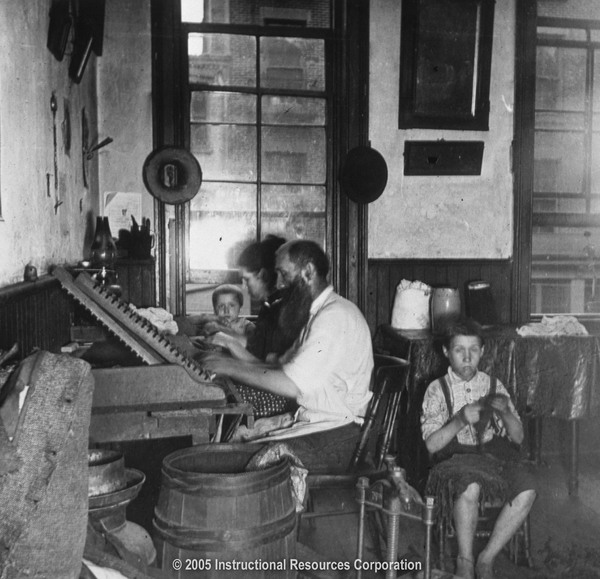Learn
Progressive Era
The Progressive Era
Near the end of the Gilded Age, Americans became increasingly aware of the social injustices around them. The movements to reform government and business at the end of the 19th century achieved moderate success and helped convince Americans that broader change was needed. Hence, this era of great reform and change, the Progressive Era (1890-1920), witnessed the expansion of the U.S. government as it attempted to improve the lives of its citizens.
Theodore Roosevelt
Reformers of the period sought to achieve "progress" in a host of social areas ranging from child labor to suffrage to government reform and food processing. What had begun as a grassroots effort, quickly blossomed into a national movement with support from well-known political figures such as Theodore Roosevelt, who was the U.S. President from 1901 to 1909. Through legislative action, rallies, and even hunger strikes, the Progressives left a mark on the nation that would not soon be forgotten.
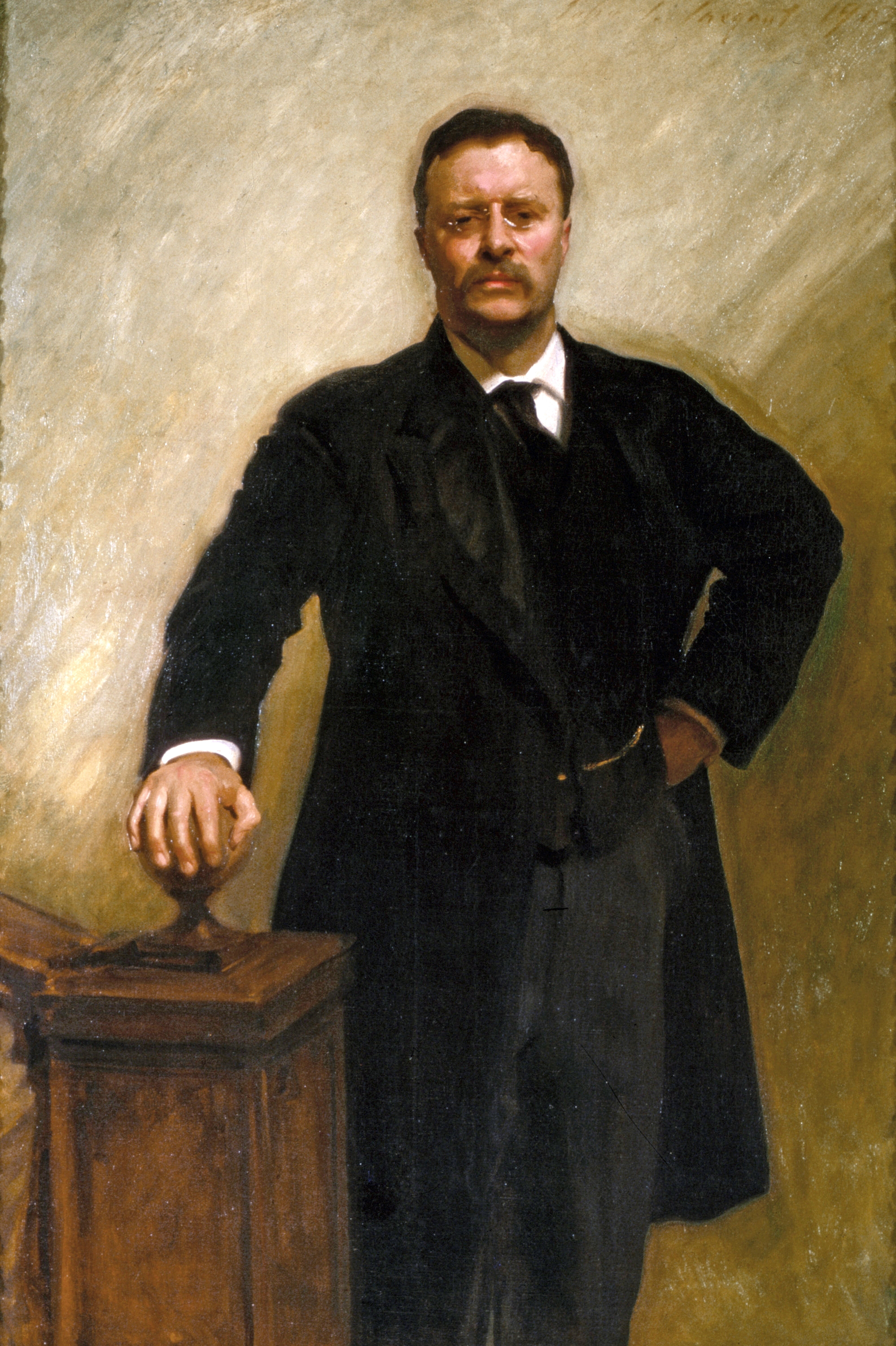
A Progressive President
Republican party leadership never intended for Teddy Roosevelt to become president. His was included on the ticket in 1900 because his popularity would help re-elect McKinley, and to put him into the relatively powerless and largely' invisible position of Vice-President. His elevation to president on McKinley's assassination shook up the balance of power in Washington.
Read US History: Progressives in the White House to learn more about Theodore Roosevelt and the Republican Party leadership.
Rough Rider in the White House
William McKinley was assassinated in 1901, bringing his Vice President, Theodore Roosevelt, to the White House. Roosevelt shook up the political status quo on many ways, and often opposed a Congress largely dominated by big business. While hailing from wealth, he connected with the common people, and was extremely popular. Roosevelt was the first president to win the Nobel Prize.
Read US History: Teddy Roosevelt: The Rough Rider in the White House to learn more about Theodore Roosevelt.
The Trustbuster
Teddy Roosevelt was one American who believed a revolution was coming. He believed Wall Street financiers and powerful trust titans to be acting foolishly. While they were eating off fancy china on mahogany tables in marble dining rooms, the masses were roughing it.
Read US History: The Trust Buster to learn more about Theodore Roosevelt and the Progressive era.
The Conservationist
What was the political motivation for the Newlands Reclamation Act? According to "Qualified to Succeed"; Elwood Mead and the Durham Agricultural Colony, 1915-1919 which discussed the Durham Colony of California, there was a desire to settle the land and build strong communities based on "republican" values and to limit the growth of Asian and some European immigration.
Read Preserving the Wilderness to learn more about Theodore Roosevelt and his plan to protect the wilderness.
Railroad Regulator
In addition to being a trustbuster and conservationist, as president Theodore Roosevelt also made an impact on railroad regulation. The first landmark effort of the federal government to regulate the railroad industry came in 1887 with the passage of the Interstate Commerce Act. However, by the early 1900s, it became apparent that the law needed to be strengthened. During the Roosevelt presidency, the Hepburn Act of 1906 was passed and had a significant impact on the unfair practices of railroad companies. The federal government would now have the power to set maximum fees that could be charged by companies.
Progressive Goals
The Progressives believed the government should take more responsibility in protecting workers and the poor. The government must be free from corruption in order to accomplish this major goal and the following supporting goals:
- The government must play a larger role in regulating economic activities.
- The government must increase responsibility for human welfare.
- The government must develop more social welfare programs.
Roots of Progressivism
The Progressive Movement has its roots in various sources and regions of the country. The one thing all of these sources had in common was the idea that reform was desperately needed and that they must work to make it happen. Most Progressives believed in democracy and capitalism and did not support sweeping political and social reforms like those promoted by socialism (a philosophy favoring government control of property and income); however, they were influenced by the work of writers like Edward Bellamy. His novel, Looking Backward published in 1888, is set in the year 2000 and reflects back on the problems of the Gilded Age that were solved by a utopian socialist government.
Read Roots of the Movement to learn more about the influences on Progressivism.
Populist Influence
Although the Populist Movement faded from American politics, by 1900, the movement left a definitive mark on the American political system by altering political alliances of the Republican and Democratic parties and influencing the progressive movement.
The Populists (Members of the Populist Party formed in 1892 to help farmers, and implement economic reforms like a larger money supply based on silver and gold) worked to achieve various economic and political reforms; some, like free silver, would be rejected indefinitely. However, others, like initiative, referendum, and recall, would be placed on the progressive agenda at the state level. In addition, progressive would take on corruption and labor issues started by the Populists at the city level.
Muckrakers
The Start of the Progressive Era
The sense of urgency to reform was amplified after Americans read stories of horrible social ills in reports published by "muckraking" journalists. Vivid accounts and pictures of child laborers, harsh working conditions in factories, and questionable business practices convinced many Americans to join a cause to help better society. Photos by Jacob Riis, stories by Ida Tarbell, and published works by Upton Sinclair revealed how the other half of society lived. Collectively, these stories and figures helped to inspire a new age in America, the Progressive Era (Period of reform in the U.S. from 1890s to 1920).
Muckrakers
"We muckrake, not because we hated our world, but because we loved. We were not hopeless, we were not cynical, we were not bitter." -Ray Stannard Baker, a muckraker and one of the most renowned contributors to McClure's Magazine.
Muckrakers (Reform minded journalists of the Progressive Era), such as Mr. Baker, often had good intentions and genuinely sought to improve the lives of the less fortunate. Through their investigative work, the world came to see and understand the plight of poor and the true nature of conditions within many of the nation's leading factories. The images and tales were often disturbing and graphic. The utter shock of the conditions helped to inspire change across the nation. Jacob Riis was one such muckraker. Through the medium of photography, Riis exposed the dark side of tenement living.
Read Muckrakers to learn more about Riis and other muckrakers.
Upton Sinclair
One of the most famous muckrakers of the Progressive Era was Upton Sinclair. Sinclair's novel The Jungle (1906) revealed the revelations of unsanitary conditions in the meat packing industry. It shocked Americans into demanding regulation of the food industry.
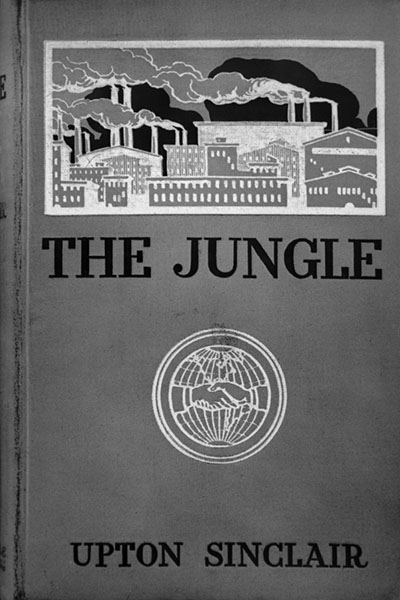
Impact of Sinclair's Work
President Roosevelt played a key role in the fashioning of a Pure Food and Drug Act, and a Meat Inspection Act, both in 1906. He worked with meat packers to design compromise legislation under which government inspectors were allowed into the packing houses, but meat packers could appeal their decisions in court.
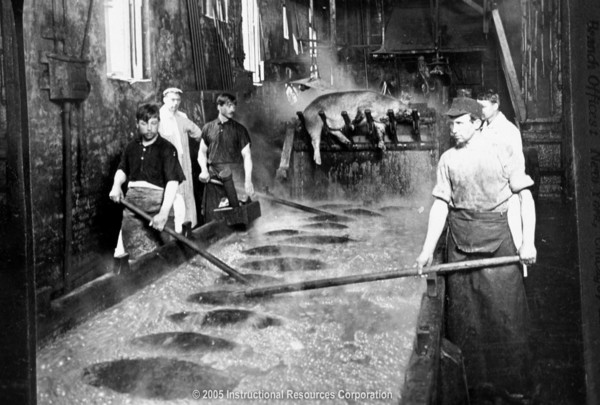
Ida Tarbell
Ida Tarbell was a muckraking journalist who took on Standard Oil. She wrote a series in McClure's Magazine about the ruthless actions of Rockefeller in his rise to create the Standard Oil monopoly.
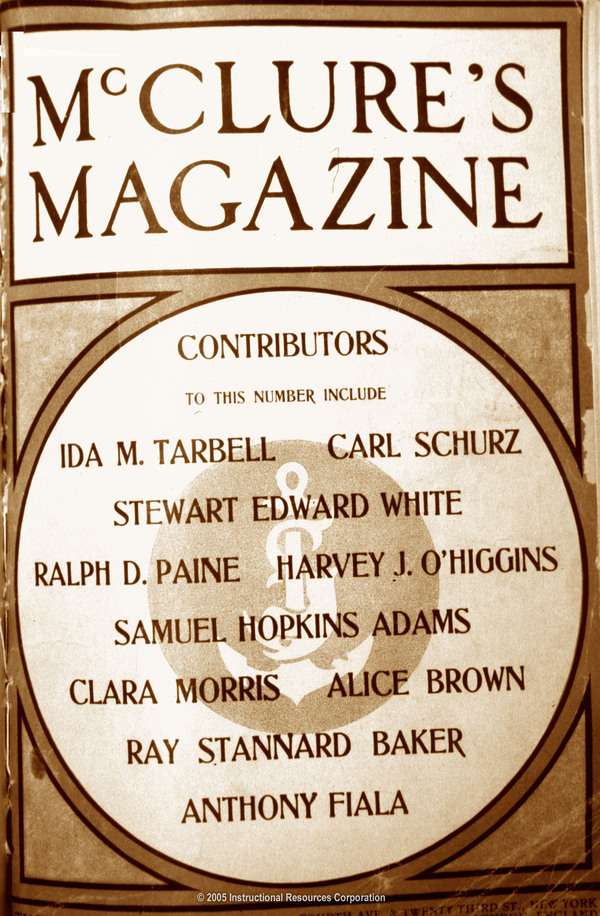
Jacob Riis
Jacob A. Riis was a muckraking who wrote for newspapers, wrote books, and took photographs to document the living and working conditions of immigrants in New York City in the late 1800s. His work included books, Children of the Poor and How the Other Half Lives, which impacted child labor laws and laws to improve tenements.
The photo below taken by Jacob Riis documents the living conditions of a Bohemian family who made cigars and did piecework for the garment trade in their tenement apartment in New York City around 1889. The children also worked as a necessary contribution to the family income.
